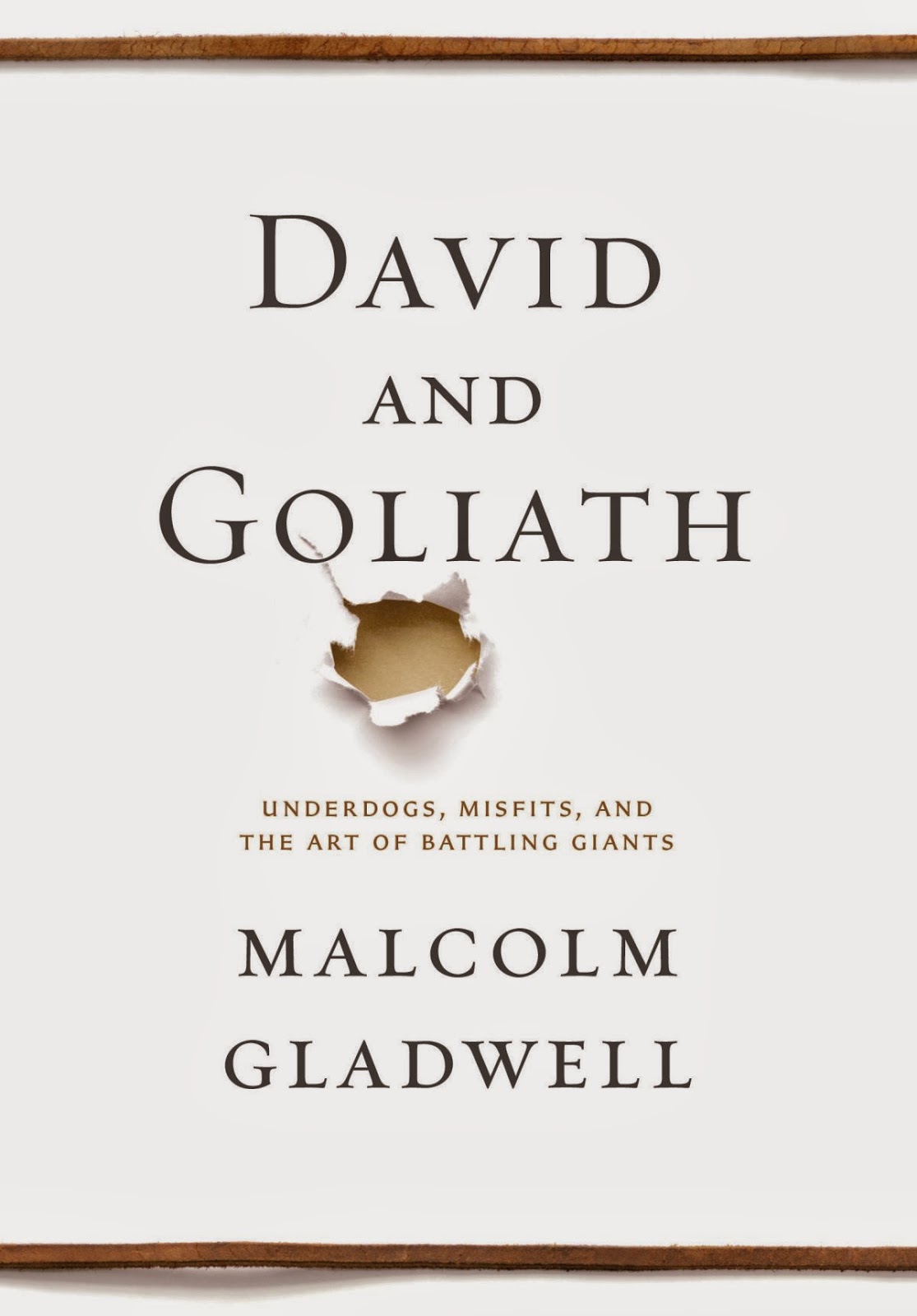At this point, I've read most of Malcolm Gladwell's books, and I've always enjoyed reading them. So when I saw that his new one: David and Goliath: Underdogs, Misfits, and the Art of Battling Giants (2013), I got on the wait list--almost--immediately.
Gladwell has a style of looking at and analyzing the world around him in a unique way, and then distilling that information for his readers. I still like his explanation of why most of Canada's best hockey players were born in December. Unfortunately, this was my least favorite of his books.
The book title explains the premise straightforwardly enough, but it felt more to me like some loosely connected anecdotes forced into a box of conclusions that just don't fit. Although Gladwell picked some interesting subjects (in fact, I've added at least two more books to my reading list because of this book), including: civil rights, the effects of being orphaned, and the American justice system, the cursory look into the subjects and pat conclusions felt forced. I was continually annoyed by his conclusions and wanting more information.
It seems that Gladwell is always looking for the simple, counter-intuitive statement to suck people into his books. Some of these are: smaller class sizes are not optimal; sometimes it is better to go to a worse school; many successful people have made it because of, and not in spite of, their dyslexia; and stricter laws and punishment do not deter crime.
The problem when you look closer is that Gladwell's conclusions are either common sense, or he is taking a situation that is inherently complex, simplifying it, and mixing correlation with causation until you can't believe anything he's saying. I felt as I was reading that Gladwell was the opposite of one of my favorite non-fiction writers, Jon Krakauer. Krakauer is a very careful writer who takes the time to clearly lay out the facts, the situation, and the context in an effort to inform. Gladwell seemed more interested in sensational statements that were not backed up or explained thoroughly in order to entertain.
Although this was a frustrating reading experience, it did go quickly, and it did spike my interest in some books about the subjects he brings up because I kept wanting more information than he was providing.

No comments:
Post a Comment